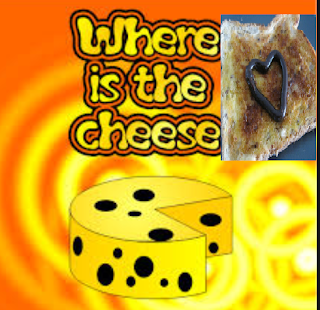Before the 1600s, the workplace drug most commonly consumed in the West was beer. Then capitalism brought a craze for something new: Coffee
Iconic Sydney beaches closed as restrictions enforced amid coronavirus crisis
Bondi, Bronte and Tamarama beaches have been temporarily closed amid confusion over the NSW government's attempts to enforce a limit of 500 people at beaches.
Naomi Klein: Crises Can Be Opportunities For Systemic Change

Crises like coronavirus are opportunities as well as threats. Naomi Klein writes that ideas that were heretofore beyond consideration can sometimes become possible – for example no-strings bailouts of big companies or medicare for all. Depends on how you treat them. – The Intercept
Mae Martin: ‘It’s enriching to share things you’re ashamed of’
At expats_cz Raymond Johnston lists 20 great novels set in Prague: a reading list that spans 130 years of literature.
I'd be more encouraged if it wasn't described as: "A round up of some of the greatest novels about Prague written in the English language, by non-Czech authors, over the course of 130 years" if it didn't also include books not written in English -- though of course it's good to see some of those included, too ...
The International Publishers Association has announced the shortlist for this year's Prix Voltaire, awarded for: "exemplary courage in upholding the freedom to publish and in enabling others to exercise their right to freedom of expression"
Publishing houses from Turkey, Malaysia, Vietnam, and Pakistan are in the running for the prize, which will be announced at the end of May.
The most recent addition to the complete review is my review of Kike Ferrari's Like Flies from Afar, due out shortly in English (from Farrar, Straus and Giroux in the US and Canongate in the UK).

I’m living in a sci-fi movie. In fact, you are too. We’re just further along in the plot than you are. A man buys food in a market in some little-known spot in China and Rome becomes a ghost town. It’s a strange movie and the popcorn tastes of hand sanitizer. This is Italy. Once it meant “pasta,” now it means “coronavirus.”
Archaeologists in Russia have unearthed a huge 25,000-year-old circular structure built from the bones of at least 60 woolly mammoths.
See also Gizmodo: “Google has announced that it’s partnering with the White House to create a national coronavirus website, which is totally related to whatever the hell the administration was talking about at Friday’s [Friday the 13th] press conference. There, President Donald Trump vastly oversold and misattributed an upcoming, supposedly Google-run project to build a “nationwide” coronavirus screening site to direct people to nearby “drive through” testing depending on their symptoms. In reality—as Google clarified in a frantic tweet just hours later—such a tool is barely in its trial stages at Verily, Google’s sister-company under the Alphabet umbrella, and it will only be useful for people in the San Francisco Bay Area for the foreseeable future. It purportedly wasn’t even intended to be publically available until White House staff dropped the ball. A person familiar with the matter told the New York Times that Verily’s pilot program (not a website—that’s still yet to be announced) is planned to launch Monday and can direct Bay Area residents exhibiting flagged symptoms to a total of three testing locations. While still absolutely commendable, don’t get me wrong, that’s still significantly different and scaled-down from what Trump and co. were selling…”
“Emergency preparedness and prepping checklists for everyone – The Prepared is a collection of free, obsessively-researched reviews of the best prepper gear and skills so you can protect your life, family, and home in an emergency. Our experts do the work so you don’t have to. No BS. No propaganda. All are welcome. “The Prepared is more like a curated wiki than a blog. And you may have noticed the lack of ads and other junk. The Prepared is supported by readers, and when you buy something we recommend, we may get an affiliate commission — but it never affects your price or what we pick.”
THE POOR LITTLE THING: Smallest known dinosaur found trapped in 99-million-year-old amber
What to read, watch and listen to when you’re quarantined
Every month Geraldine Doogue on Saturday Extra has a segment The Pick: what to read, watch and listen to. For this month two reviewers (Michael Wesley and Aarti Betigeri) review a number of works, including:
Peter Burke: A social history of knowledge (book, 2000). Burke covers not only the creation of knowledge, but also its destruction – the craft of agnotology, the study of culturally-induced ignorance or doubt.
Christina Thompson Sea People: The Puzzle of Polynesia (book, 2019). A story of epic voyagers and extraordinary skills in navigation, long before Europeans ventured into the Pacific.
Samanth Subramanian How Hindu Nationalists are tearing India apart (Guardian article, 2020). About how, on Narendra Modi’s watch, India is moving away from its secular constitutional roots.
Malcolm Gladwell Revisionist history (a series of half-hour podcasts) “Gladwell’s journey through the overlooked and the misunderstood. Every episode re-examines something from the past—an event, a person, an idea, even a song—and asks whether we got it right the first time.”
